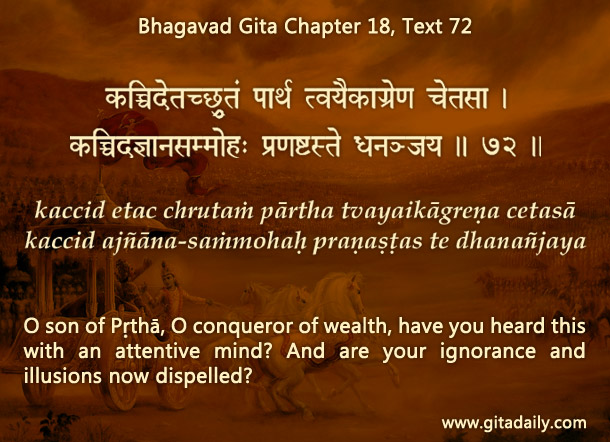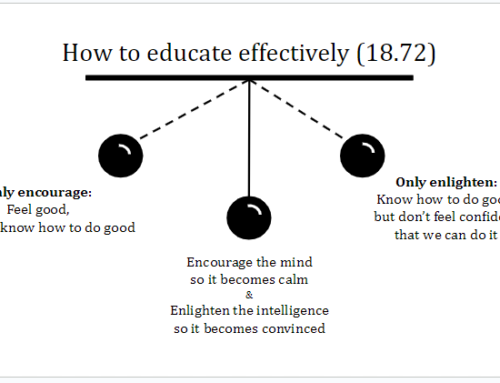A blind person walking on a street, being aware of being unaware of the path, will walk cautiously. But a person with cataract may see a ditch further away than what it is – and, due to that illusory perception, may walk right into it. As illusion misleads us into believing that we are not in ignorance, it endangers us more than ignorance.
At the start of the Gita, Arjuna exhibited ignorance about the soul. No doubt, his ignorance was transcendentally orchestrated by Krishna for sharing Gita wisdom with the world. But simultaneously for our own edification, we can analyze what was wrong with his reasoning. Equating the assembled warriors on the Kurukshetra battlefield with their bodies, he lamented their impending death.
But Arjuna’s perception was not just uninformed – it was also misinformed. With that deluded perspective, in the Gita’s first chapter, he brought up concerns about kula-dharma (dynastic duties) to argue against fighting in the war. While his concerns were valid, they needed to be subordinated to the knowledge of the soul and its corresponding spiritual dharma of loving Krishna. This enlightened focus is evident in the Gita’s concluding call (18.66) to sacrifice all other dharmas for the para-dharma of bhakti.
Seen in the context of Arjuna’s initial misinformed arguments, Krishna’s double enquiry at the end of the Gita (18.72) whether Arjuna’s ignorance and illusion have been destroyed gains significance. That is, Krishna is asking whether Arjuna has become free from misinformed conceptions of dharma.
When we hear the Gita’s message, we may feel that we already know it. But while knowing it superficially, we might still be deep down holding on to some false conceptions. Only when we let Gita wisdom challenge and counter our misconceptions will we become free from both ignorance and illusion and progress swiftly towards enlightenment.
Explanation of article:
Podcast:



Very good example of the double issue we face.
We are ignorant of the illusion!
Knowing this, however again and again we forget.
Keeping the knowledge at the forefront of our minds enables us to be less ignorant of our situation and thus understand illusionary nature better.
Thank you for the Gita thought today (and everyday)
Jai Shri Krishna